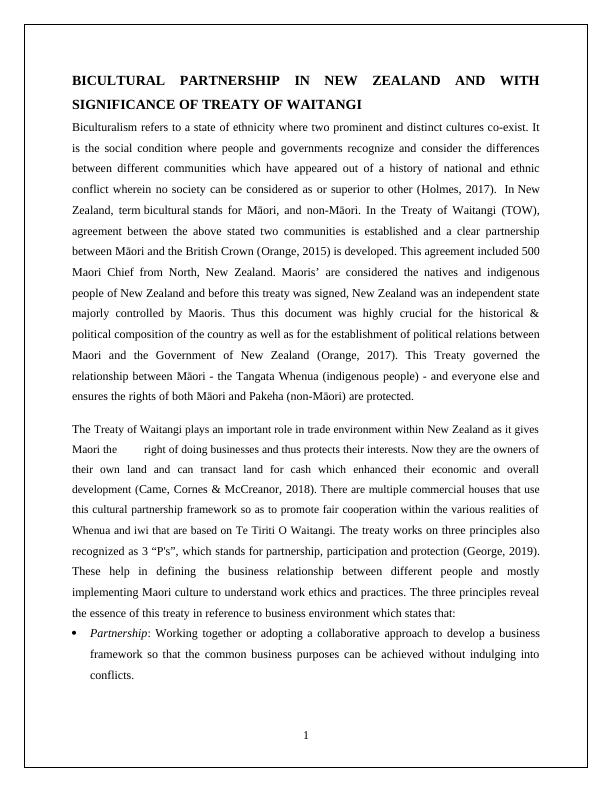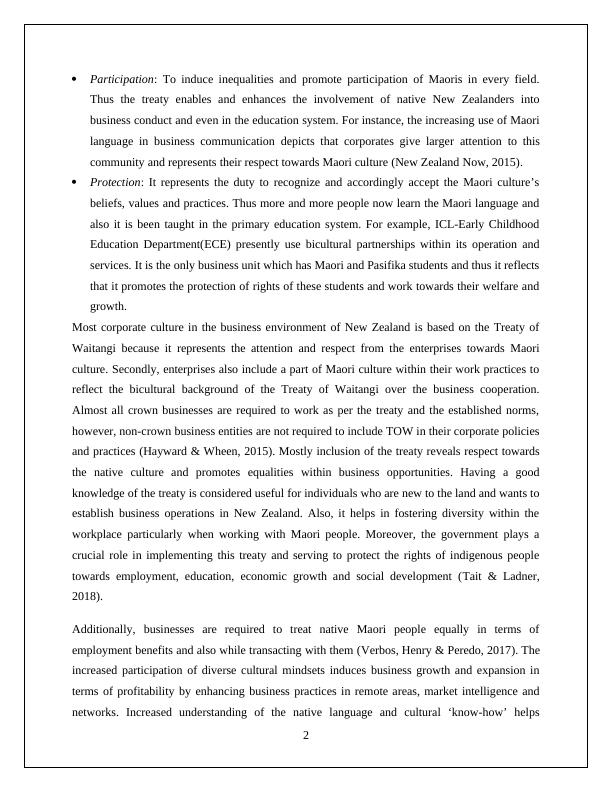Bicultural Partnership in New Zealand and the Significance of Treaty of Waitangi
The assignment is a portfolio for Task 3 of the New Zealand Diploma in Business course, focusing on professional practice and communication in business. The portfolio includes meeting agendas, discussions on challenges faced in work-based learning and biculturalism, and questions for ICL pathway services.
5 Pages1616 Words45 Views
Added on 2023-01-10
About This Document
This article discusses the concept of bicultural partnership in New Zealand, focusing on the significance of the Treaty of Waitangi. It explores the historical and political composition of the country, the principles of the treaty, and its impact on trade, business environment, and corporate culture. The article also highlights the role of the government in implementing the treaty and protecting the rights of indigenous people.
Bicultural Partnership in New Zealand and the Significance of Treaty of Waitangi
The assignment is a portfolio for Task 3 of the New Zealand Diploma in Business course, focusing on professional practice and communication in business. The portfolio includes meeting agendas, discussions on challenges faced in work-based learning and biculturalism, and questions for ICL pathway services.
Added on 2023-01-10
ShareRelated Documents
End of preview
Want to access all the pages? Upload your documents or become a member.
Waitangi Culture and Its Influence on New Zealand's Government System
|6
|1273
|474
Impact of Bicultural Partnership with the Maori
|8
|1302
|76
The Treaty of Waitangi and Early Childhood Education
|9
|2116
|214
Bicultural Partnership in Business Activities: Fonterra and Tangata Whenua
|11
|1989
|69
Bicultural Partnership in Organizational Communication
|11
|2097
|54
Treaty of Waitangi Assignment
|10
|2109
|290


